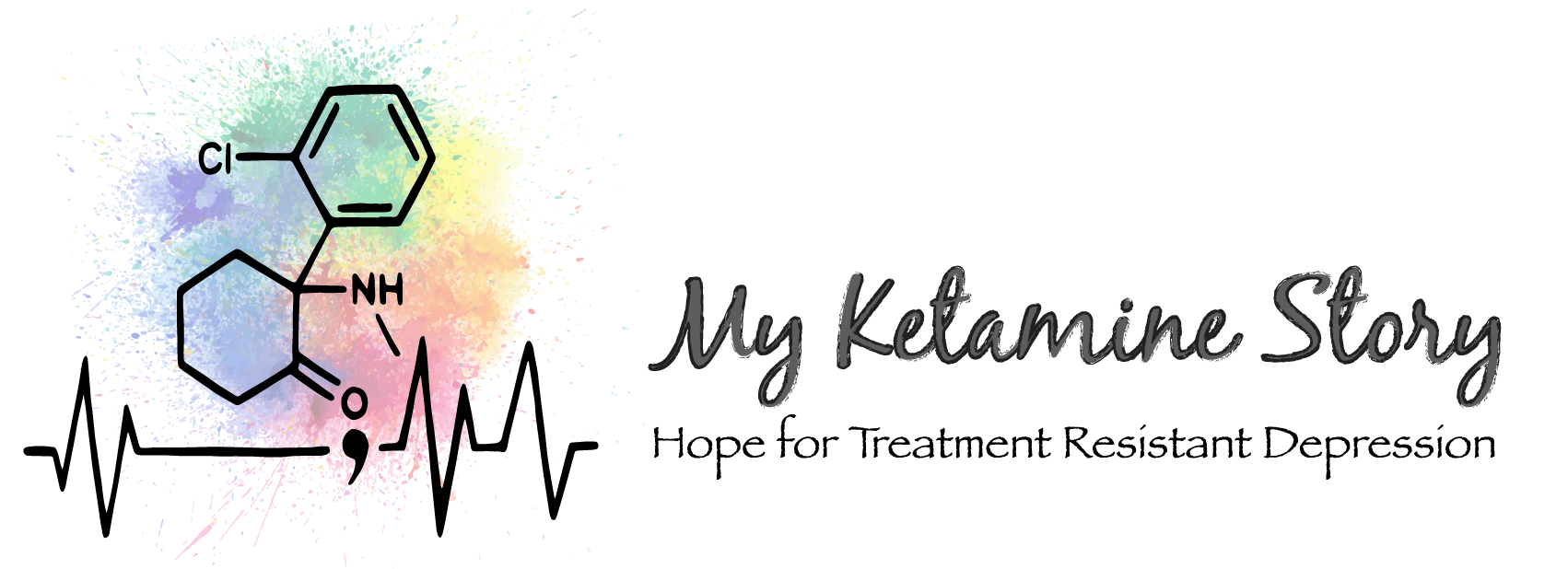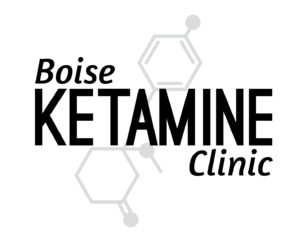Making Sense Out Of Why Ketamine Is A Successful Therapy For Treatment Resistant Depression
Hello again. This is Susan from myketaminestory.com. Welcome to my first official blog for the Boise Ketamine Clinic website. I am excited to have another platform to share my experience with Ketamine treatments in hopes of educating others on the potential this drug has for helping others, like me, with Treatment Resistant Depression (TRD).
As many of you know, I suffer with TRD, anxiety disorder, and Obsessive Compulsive Disorder (OCD). In January of 2015, I nearly succeeded in taking my own life; after many prior failed attempts. I found myself completely spent and my light went out. I had spent decades searching for something that could allow me to be symptom free from the diseases in my brain, and I was certain that I had exhausted all my options. I decided, it was time to finally give up. I wasn’t willing to exist in this beautiful world feeling such despair all the time. I could no longer fight. My family needed to accept my fate. I had.
I suffered with insomnia, still do on occasion – pretty severely – so I felt I could not escape from the torment my mind constantly replayed for me like a video on repeat. I wanted it to stop. I needed the chaos to stop. I was driven and insisted on the noise level in my head to be low if not muted. I strove for that outcome. I spent decades putting myself through treatment after treatment trying unsuccessfully to combat the demons living in my mind. They fought back and tortured me. I battled using everything I had learned through the years to manage my illness. I had expended all my energy. I felt that the depression and anxiety controlled me; all the time. What kind of life is that? There wasn’t any down time. No time to see that life was worth living. All my moments were spent focused on eliminating the beast. I didn’t see getting a vacation from the daily struggles and pain, ever. I had no hope.
My doctor at the time suggested deep brain stimulation as my next and last resort. I was shocked. Defeated. They want to do brain surgery to fight this illness. Really? Is that my future? My doctor wants me to try experimental brain surgery in hopes of discovering some relief from the profound, suicidal depression? Am I willing to open myself up literally? Am I willing to take the medical risks to investigate yet another treatment that will not work for me? Am I?
I wasn’t.
I decided that because this atrocious illness was dictating my every thought and I was never going to be allowed freedom to be, to be me, I was taking action; permanent action. I almost discovered just how permanent that solution was. It was no solution at all. It felt like the only way out. It has always felt like the only way for me to be free from this petrifying bastard, depression.
It was during my time in limbo that my husband and therapist located the one single paragraph, the only written paragraph online at the time, discussing clinical trials with Ketamine. The brief article mentioned how Ketamine might be the “cure” for Treatment Resistant Depression. That short paragraph gave my family hope.
I write passionately about Ketamine now because I fear what would have become of me had my husband and therapist not located that small snippet of hope. I am thankful to places like Boise Ketamine Clinic offering lower than average cost on Ketamine infusions, as well as offering to provide Intramuscular Ketamine (IM) shots as an option for a reduced cost. This makes boosters and maintenance Ketamine therapy more realistic for many.
The journey for me to locate a Ketamine provider, afford the treatments and travel cost, and coordinating scheduling the six recommended Ketamine infusions, took months and I barely survived the process.
Looking back over the 2.5 years since then, and counting, I see how much I have grown. I have made progress. I am functioning. I am living my life symptom free for several days in a row. The most remarkable thing about Ketamine, for me, is that it worked. It continues to work. I never believed that I would know a world without darkness and pain. Never. My history has forced me to reserve any and all hope for a life without the filters my illness causes me to experience the world through. However, I survived. I found hope with Ketamine.
I have devoted much of my free time trying to understand how Ketamine works, when nothing in my past had remotely helped the constant clatter in my head. How is a drug that has little to do with changing the chemicals in my brain helping me? I have been under the impression for decades that depression is caused by an imbalance of chemicals in the brain. I have blamed myself for feeling so dreadful all the time. I must be a horrible person. I must be causing my own warped, twisted, and pathetic reality. I doubted I had an illness at all. It is very difficult to convince yourself you have depression, anxiety and OCD when not one single medication or treatment has improved the symptoms that make life not worth living.
The hours I have spent trying to reassure myself that this insidious disease wasn’t my fault! Oh, so much time. Wasted. It is painful. I am working on acceptance. I am not finding it easy. I am aware of what I have been missing. It feels impossible sometimes not to be full of rage. I am angry. I have so much training to do; reprogramming. My belief systems are routinely tested. I wade through confusion and misunderstanding daily. I am inspired by what I am learning about myself, as well as others in my life. I try not to be resentful of the years, people, and personal things I have lost. I just want to understand now.
I have been doing research. This is nothing new for me. I have devoted my life to investigating ways to manage, cope and function in this frightening world with so many hiccups in my software. My hard drive has been corrupted, so to speak. I now have to go in, reprogram and create new files and folders to organize what is fact and fiction. I know, because of Ketamine, that there is a difference.
But why? Why does Ketamine work? I love knowing that all those years of fruitless doubt about my diagnosis were just that: doubts.
It is because of my success with Ketamine, my examining, and keeping a journal of the changes I have noticed in my recovery, that I have convinced myself that depression is caused by inflammation and not a chemical imbalance as was once believed to be the only truth. It explains why the medications aimed at increasing or decreasing the receptors in the brain haven’t obtained results. It clarifies why targeting serotonin and dopamine levels haven’t proven consistently to make even a dent in many depressive individuals. This is documented over the years and why new labels have been needed. Clinical depression has so many sub categories it is not even a laughable matter. New distinctions have been needed. Names like Major Depressive Disorder, Situational Depression, and Suicidal Depression have been used to categorize the severity; maybe. I feel like the term Treatment Resistant Depression was put into the diagnostic manual because they were pretty sure the sufferer had depression but couldn’t explain why traditional methods had failed; routinely and painfully.
It is my understanding that Ketamine works to reduce inflammation in the brain. When the swelling in the brain reduces more connections throughout the mind can be made. The reduction in swollen tissues allows healing and growth to occur where it was once unable to due to being blocked.
This would also explain why Ketamine is needed long term in most cases. I feel that in my case the Ketamine reduces inflammation in my brain for an average of 8 or 9 days. I have often wondered why I can go 10-12 days on occasion but have also been known to be symptom free for 4-5 days between boosters during other periods in the past couple years of the therapy. I truly believe that stress levels, environment, sleep and diet all play a part. They can all cause our body to respond negatively or positively. It is when these other factors are in play that I find I struggle to push forward. It has taken months of reviewing, but I do believe there is a direct correlation between the effectiveness and duration of Ketamine on depressive symptoms and life style. If I am overly stressed, learning new skills, dealing with a bout of insomnia, eating poorly (especially ingesting food high in sugar) they can play havoc on my moods and how effective I feel the Ketamine has been in between appointments. Again, proving in my mind that TRD is directly related to inflammation in the body and mind and not necessarily an imbalance of chemicals.
Finally, I was recently speaking to a person that reached out to me frustrated as to why they needed to constantly return every few weeks for Ketamine maintenance. They unfortunately believed earlier reports claiming a person would be “cured” of their depression after six Ketamine infusions. I have gone on record stating that I never imagined six treatments of anything could alleviate decades of depression and anxiety. I feel for those that do.
The reason I feel Ketamine will need to be given repeatedly and not just the six recommended infusion is because the drug wears off. It is a pain reliever by nature.
I told my fellow sufferer to try imagining it in another way. Imagine that you were playing basketball and while you were going up for a jump shot you landed on the ground hard and unsteady. You injured your knee. Your knee flares up. You might take Advil or need something stronger to deal with the pain and damage you caused your body by landing incorrectly. You take a pain medication and the swelling is reduced and your pain subsides. Does that one dose of Tylenol have to be taken again? If you don’t repeat the prescription as directed, do you think the knee will continue to appear normal and free of tightness?
It is my belief that Ketamine, like any medication for inflammation, will need to be given until you are no longer symptomatic. This could be a long term treatment for many individuals. I am noticing a link between a person’s age and the amount of Ketamine therapy they were given before feeling they no longer needed routine maintenance and maybe switch to a booster infusion of Ketamine every few months. We all respond differently to medication. I might take a dose of Advil and feel pain a couple hours later. Another person with the same injury or illness may find they can go 12 or more hours before needing another pill. Those same two people might react differently to putting weight on the leg. The added pressure on the injured knee may cause the medication to dull in one person yet strangely the other injured party is screaming in agony after an hour or two. The medication has been working for both players but the strength and duration varies. It is during the time the medication is working that healing occurs. These results may only mean the medication is complex in its ability to do a specific job. I explained to my friend that this is how I choose to understand Ketamine. It makes perfect sense to me.
The more I discover, the more solid I stand in my Ketamine for Treatment Resistant Depression advocacy.
In conclusion, If you know of anyone suffering with treatment resistant depression, like I do, let them know that Ketamine therapy may be an option worth looking into. It has been and continues to offer me relief from my symptoms. If you or someone you know are considering Ketamine infusion therapy, please visit the Boise Ketamine Clinic website for low cost ketamine infusion and injection options. If you are not in the Boise, Idaho area I suggest approaching a local professional and start educating them on the benefits of Ketamine. It doesn’t hurt to ask for what you need. You can also visit my Ketamine Provider & Location List to find a provider in your area.
Originally posted on Boise Ketamine Clinic


